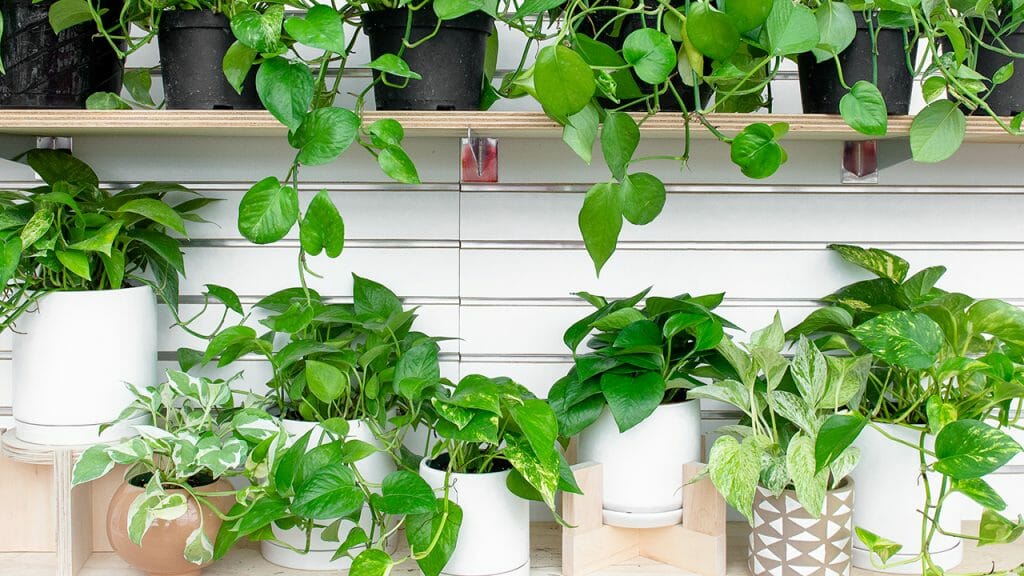Snails are known for their ability to eat large amounts of plant material, including leaves, stems, and flowers. This can be a problem for gardeners, as snails can quickly damage or even kill plants.
However, some species of snails, such as the decollate snail, are predators of other snails and slugs, which can be beneficial to the garden.
Snails produce nitrogen and nutrient-rich feces, which can help nourish the soil.
So, are snails good for plants? Yes, snails can be good for plants in moderation. They help break down decomposing organic material, contributing to soil health. However, they can also harm plants by eating leaves, stems, and flowers, especially in large numbers. Therefore, it’s important to maintain a balance.
Ecological Role of Snails
Snails play an important ecological role in maintaining the balance of ecosystems.
They are found in different habitats, including land, sea, and freshwater.
Soil Aeration
Snails help to aerate the soil by burrowing and creating small holes.
This process allows air to circulate in the soil, which is essential for the growth of plants.
The burrowing also helps to loosen the soil, making it easier for roots to penetrate and absorb nutrients.
Decomposition and Nutrient Cycling
Snails are decomposers, which means that they break down dead organic matter into smaller pieces.
This process helps to release nutrients back into the soil, which is beneficial for plant growth.
Snails also leave behind nutrient-rich feces that help to develop soil.
In addition to decomposition, snails also play a role in nutrient cycling.
They consume decaying plant material and then excrete it as waste, which is rich in nitrogen and other essential nutrients.
This waste is then used by plants to grow and develop.
Snails are an important part of the ecosystem and contribute to the health and well-being of plants.
Their role in soil aeration, decomposition, and nutrient cycling makes them valuable members of the ecosystem.
- PLANTS NOT INCLUDED. Perfect Christmas Gift: Every Original Earthlings...
- Enjoy Peace of Mind: Our plant pots are crafted from high-quality plastic,...
- Hassle-Free Plant Care: Our pots come with a removable drainage plug,...
- Spark Conversations: Place our smiley face plant pots in your home or...
- Ideal for Small Plants: At 3.5 inches, our pots are the perfect size for...
Snails and Plant Health
Snails can have both positive and negative effects on plant health.
Let’s get stuck into the two main ways snails interact with plants: herbivory and disease transmission.
Herbivory and Plant Damage
One of the most well-known interactions between snails and plants is herbivory.
Snails are known to feed on a wide variety of plants, including vegetables, flowers, and trees.
While some snail species are harmless to plants, others can cause significant damage.
Snails typically feed on the leaves and stems of plants, which can stunt growth and reduce yield.
In severe cases, snail damage can even kill the plant.
However, not all snail species are harmful to plants. Some snails, such as the decollate snail, feed on other snail species and can help control snail populations in the garden.
Disease Transmission
In addition to herbivory, snails can also transmit diseases to plants.
Snails can carry fungal spores and other pathogens on their bodies, which can infect plants when they come into contact with them.
This can lead to reduced plant health and yield.
To prevent snail-borne diseases, it is important to keep snail populations under control.
This can be done through a variety of methods, including handpicking snails, using physical barriers, and applying snail baits or other control products.
Beneficial Snails
Algae Eaters
Some species of snails, such as the pond snail and the ramshorn snail, are known as algae eaters.
These snails can help keep your pond or aquarium clean by consuming algae that can cause water quality issues.
They are also known to consume other debris and decaying matter, which can help keep your aquatic environment healthy.
Pest Control
Another type of beneficial snail is the decollate snail.
This species of snail feeds on other snails and slugs, which are known to be pests in gardens.
Decollate snails are not harmful to plants, making them an ideal solution for gardeners looking for a natural way to control pests.
They are also known to produce nitrogen and nutrient-rich faeces, which can nourish the soil and promote healthy plant growth.
It is important to note that not all snails are beneficial to plants.
Garden Management
Snail Population Control
As gardeners, we know that snails can be both beneficial and harmful to our gardens.
While some snails can help with nutrient-rich soil production, they can also cause significant damage to vulnerable plants.
Therefore, it is essential to control the snail population in our gardens.
One effective method of snail population control is to remove them from the garden physically.
We can do this by handpicking snails off plants and disposing of them in a bucket of soapy water.
Another option is to set up beer traps, which attract snails and drown them in the liquid.
However, it is crucial to dispose of the snails properly to prevent further reproduction.
Attracting Beneficial Snails
Not all snails are harmful to our gardens.
Some snails, such as decollate snails, feed on common brown snails and slugs, which can be beneficial in controlling their population.
Therefore, we can attract beneficial snails to our gardens by providing them with a suitable habitat.
We can do this by creating a moist environment in our gardens, which is suitable for snails.
We can also provide them with hiding places, such as under rocks and in crevices.
Additionally, we can plant snail-friendly plants, such as lettuce and cabbage, to attract beneficial snails to our gardens.
How to Get Rid of Snails in Your Garden Naturally
To get rid of snails in your garden naturally, you can try the following methods:
- Hand Picking: Regularly check your plants, especially in the evening or early morning, and hand pick any snails you find. Dispose of them far from your garden.
- Barriers: Create barriers around your plants using crushed eggshells, diatomaceous earth, or copper tape. Snails avoid crossing these materials due to their sharp or repellent nature.
- Beer Traps: Bury shallow containers (like yogurt pots) in the ground and fill them with beer. The yeast attracts snails, which then fall in and drown.
- Natural Predators: Encourage natural predators like birds, toads, and beetles in your garden. They can help control the snail population.
- Coffee Grounds: Spread used coffee grounds around plants. The caffeine is toxic to snails and they tend to avoid it.
- Watering Schedule: Water your plants in the morning. Snails are attracted to moisture, so watering in the morning allows the soil to dry by evening, making it less inviting.
- Attractant Plants: Plant sacrificial plants to lure snails away from your main garden. Once they congregate on these plants, you can remove them.
- Vegetable Scraps: Place vegetable scraps or lettuce leaves in a corner of the garden to attract snails, then collect and remove them from the area.
Remember, natural methods may require patience and persistence, but they help maintain a healthy, chemical-free garden ecosystem.
Frequently Asked Questions
What do garden snails typically feed on?
Garden snails are known to feed on a wide range of plants, including vegetables, fruits, flowers, and ornamental plants. They are especially attracted to plants that are moist and tender, such as seedlings and young plants. Snails use their radula, a ribbon-like structure with rows of tiny teeth, to scrape and chew the leaves of plants.
Can snails cause harm to garden plants?
Yes, snails can cause harm to garden plants. When snails feed on plants, they leave behind holes and ragged edges on the leaves, which can weaken and stress the plant. Over time, repeated feeding by snails can cause stunted growth, reduced yield, and even death of the plant.
What role do snails play in the ecosystem?
Snails play an important role in the ecosystem as decomposers and nutrient recyclers. They help to break down dead plant material and animal waste, returning nutrients to the soil. They also serve as a food source for many predators, such as birds, frogs, and snakes.
Is it beneficial to have snails in potted plant environments?
Having snails in potted plant environments can be beneficial to some extent. Snails can help to break down organic matter in the soil, making it easier for plant roots to grow. However, snails can also damage plants and leave behind unsightly holes and ragged edges on the leaves.
How can one naturally deter snails from the garden?
There are several natural ways to deter snails from the garden. One way is to create barriers around the plants using materials such as copper or eggshells, which snails find unpleasant to crawl over. Another way is to use companion planting, where plants that repel snails are planted alongside those that are attractive to them.
Should gardeners remove snails from plants to prevent damage?
If snails are causing significant damage to garden plants, gardeners may choose to remove them. However, it is important to do so in a humane and ethical way, such as by handpicking them and relocating them to a different area. Alternatively, gardeners can also use natural predators of snails, such as ducks or chickens, to help control their population.










